Google Drive is one of the most popular cloud storage services.
And, for all the right reasons, it offers flexible pricing, regional pricing, and many other advantages.
Unfortunately, it does not offer end-to-end encryption. Moreover, it is not an open-source offering.
So, do we have an open-source replacement for Google Drive?
Sure, free cloud storage services are available, but they aren’t open-source nor entirely secure/private.
Fret not, we have an excellent open-source solution, i.e., Peergos.
Peergos: A Peer-to-Peer Open-Source Cloud Storage Service With a Mini Social Network Platform
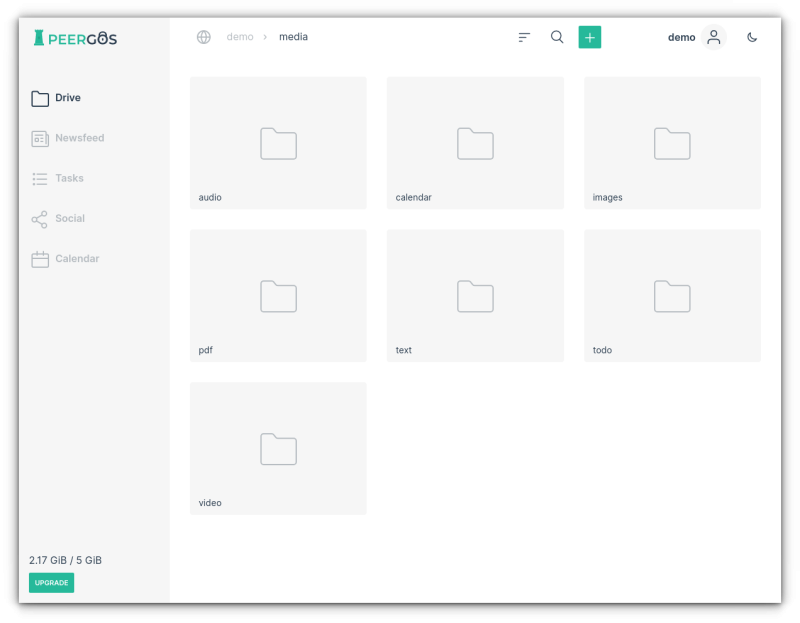
Peergos is not just an ordinary alternative to Google Drive. It is much more than just a private web storage platform.
With Peergos, you get an end-to-end encrypted private webspace built on top of IPFS protocol (peer-to-peer).
The use of such a protocol makes it a decentralized storage platform which is resistant to censorship.
Not just limited to its security/privacy, you also get the ability to socialize with your friends in the platform using the newsfeed.
For instance, you upload photos and share them with your friends, other users (your friends) can see them in their newsfeed and interact just like a social media platform.
You also get to add to-do tasks, organize a calendar, and share it with collaborators/friends as required.
In other words, you can also consider Peergos as a Nextcloud replacement to some extent.
You can opt to self-host Peergos or opt for their cloud offering starts for free (200 MB storage) and can be upgraded to 50 GB for £5 /month or 500 GB for £25 /month.
Let me highlight some of the key features that you get with Peergos.
Features of Peergos
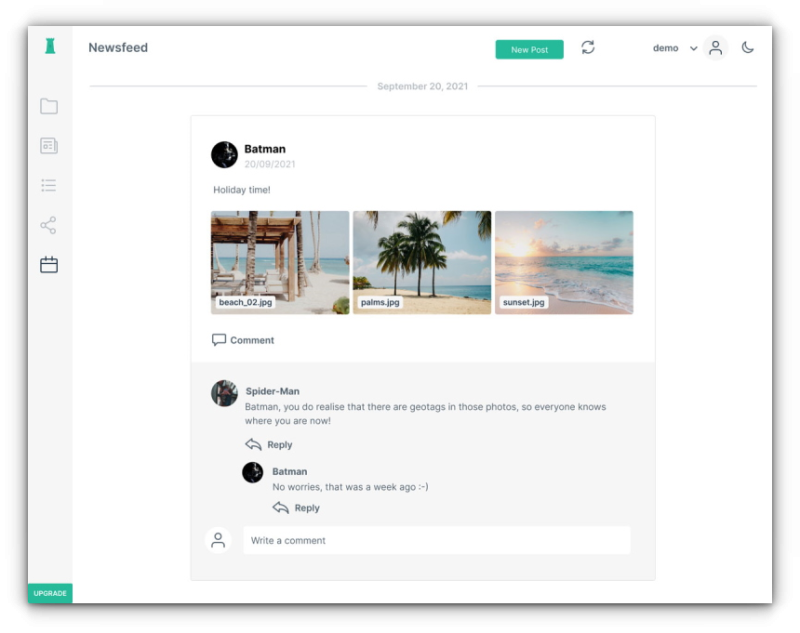
Considering you get a variety of functionalities with Peergos, here are the highlights:
- End-to-End encryption for storage.
- Ability to share your photos, video, and documents.
- Generate links to let other users download your file, if required.
- Keeps your activity private without recording your usage.
- You can self-host Peergos, giving you complete control.
- Private metadata, keeping your contact list, file size, directory structure and other information hidden.
- Offering a decentralized storage that you can access seamlessly.
- Open-source and audited.
- Social media network abilities.
- To-do list, and task management.
- Collaboration features.
- Markdown support.
- Ability to view PDF documents.
- Access calendar, create and organize events.
- Website directory, which can be accessed using a personalized URL or local port if you self-host.
Peergos is a feature-rich offering that lets you store your files without worrying about trusting the company.
While it is not entirely anonymous, Peergos as a service does not record any of your information.
Moreover, you get the ability to self-host, if you want total control of everything.
Get Started with Peergos
You need to sign up (for the cloud option) or self-host it as per the instructions in its GitHub page.
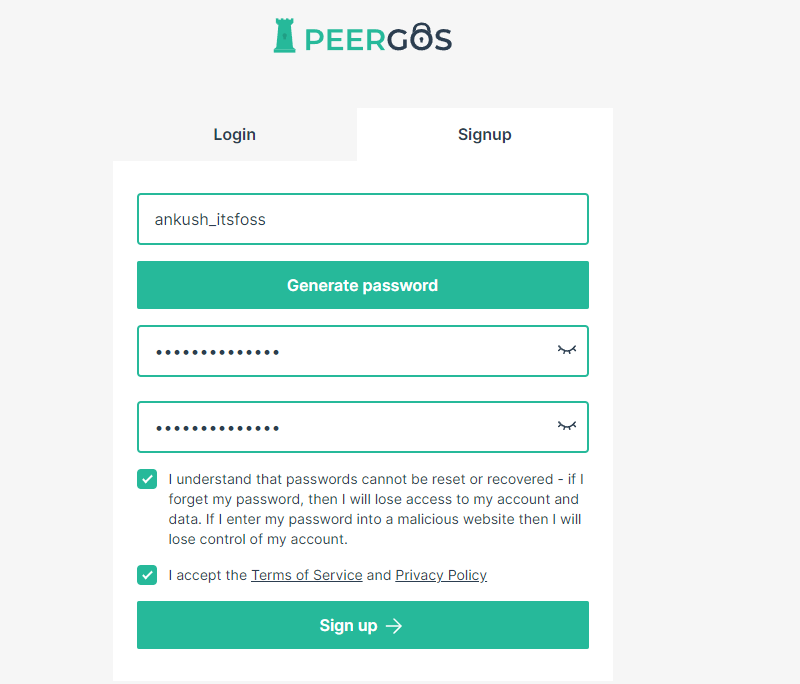
The free space of 200 MB is pretty low. However, if you want to store some of your important documents, and select collection of photos, this could be useful for some.
The premium upgrade has the option to go up to 500 GB of storage for £25 per month.
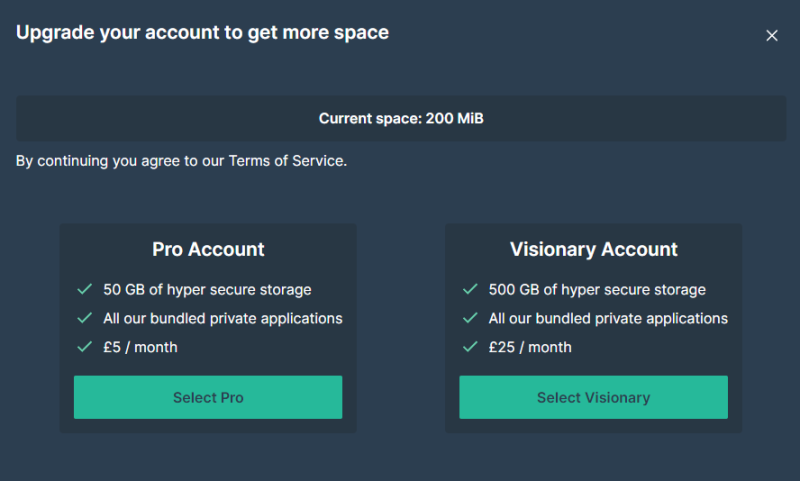
Navigating around the platform is pretty easy and the user interface looks good.
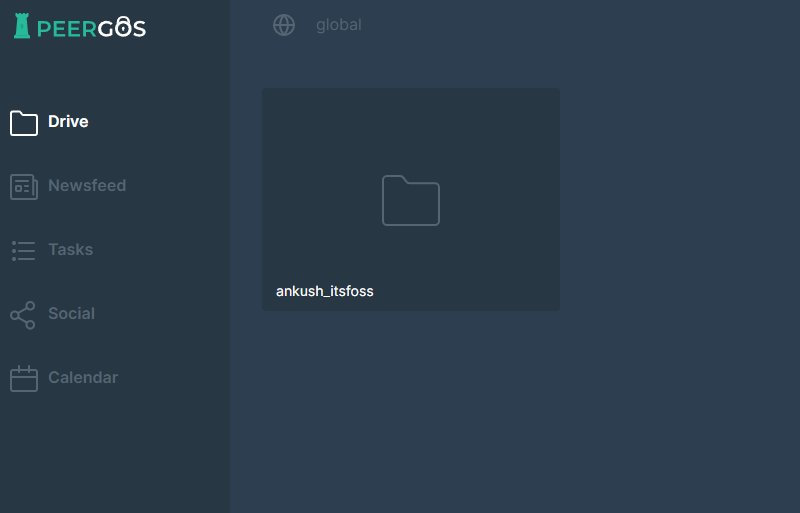
It does support a dark mode, so you can toggle it anytime you need it. The sharing options available should be sufficient for all kinds of collaboration.
The ability to control access to your shared files using groups is an interesting idea.
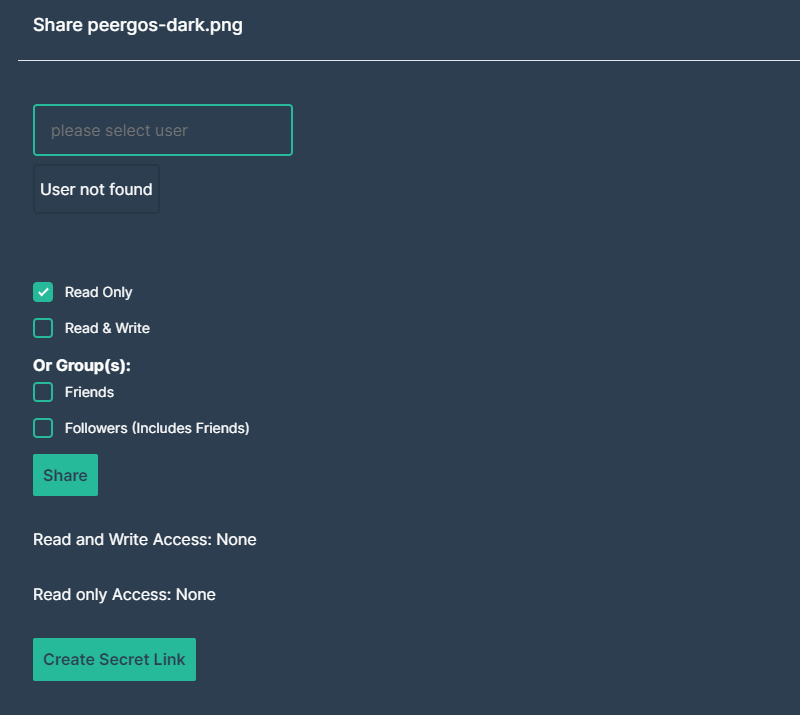
Final Thoughts
Peergos is a unique offering that you can self-host. It is open-source and offers all the goodies for a privacy enthusiast to store files and collaborate securely.
The cloud offering may not be attractive for its low free storage space. But, if you really like the concept, you can choose to upgrade to a premium plan with more storage.
If you wanted an open-source alternative to Google Drive, Peergos can be an interesting pick.

